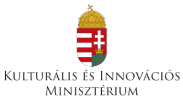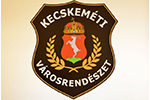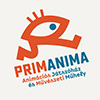THE 16TH KAFF PRIZES WERE AWARDED
Áron Gauder's Four Souls of Coyote was a hit at the 16th KAFF. It also won the festival's Grand Prize, the Audience Award and the Best European Feature Film. The latter was shared with Nuno Beato's My Grandfather's Demons. According to the jury, Four Souls of Coyote is "a synthesis of the creative and intellectual efforts of Áron Gauder in animation, which has been created in an exemplary team effort to present the existential questions of our time in a way that is enjoyable and comprehensible to a wide audience, and which suggests a way forward. The film is a harmonious blend of handcrafted animation and high creative use of contemporary technology. With the 16th KAFF Grand Prize, the jury wishes to recognise the outstanding professional-artistic achievement of the creators."
José Miguel Ribeiro's Nayola was awarded a special prize. Patouille and the Parachute Seeds won the Best European TV Series award, while A Town Called Panic: Summer Holiday and Looking for Santa shared the Best TV Special award.
The Pannónia-Matolcsy Award for Best Feature Feature Film went to Tibor Bánóczki and Sarolta Szabó's White Plastic Sky. According to the jury, "White Plastic Sky continues the best traditions of Hungarian animation by seeking new possibilities and new forms of expression in animation. The work of Tibor Bánóczki and Sarolta Szabó presents with a unique atmosphere and powerful drama the problem of our time, the fate of human civilisation, a problem that concerns us all. The new award, named after György Matolcsy, the former leader of Pannónia Film Studio and a man of exceptional stature, is the jury's recognition of the dedicated, high-quality work of the entire creative team."
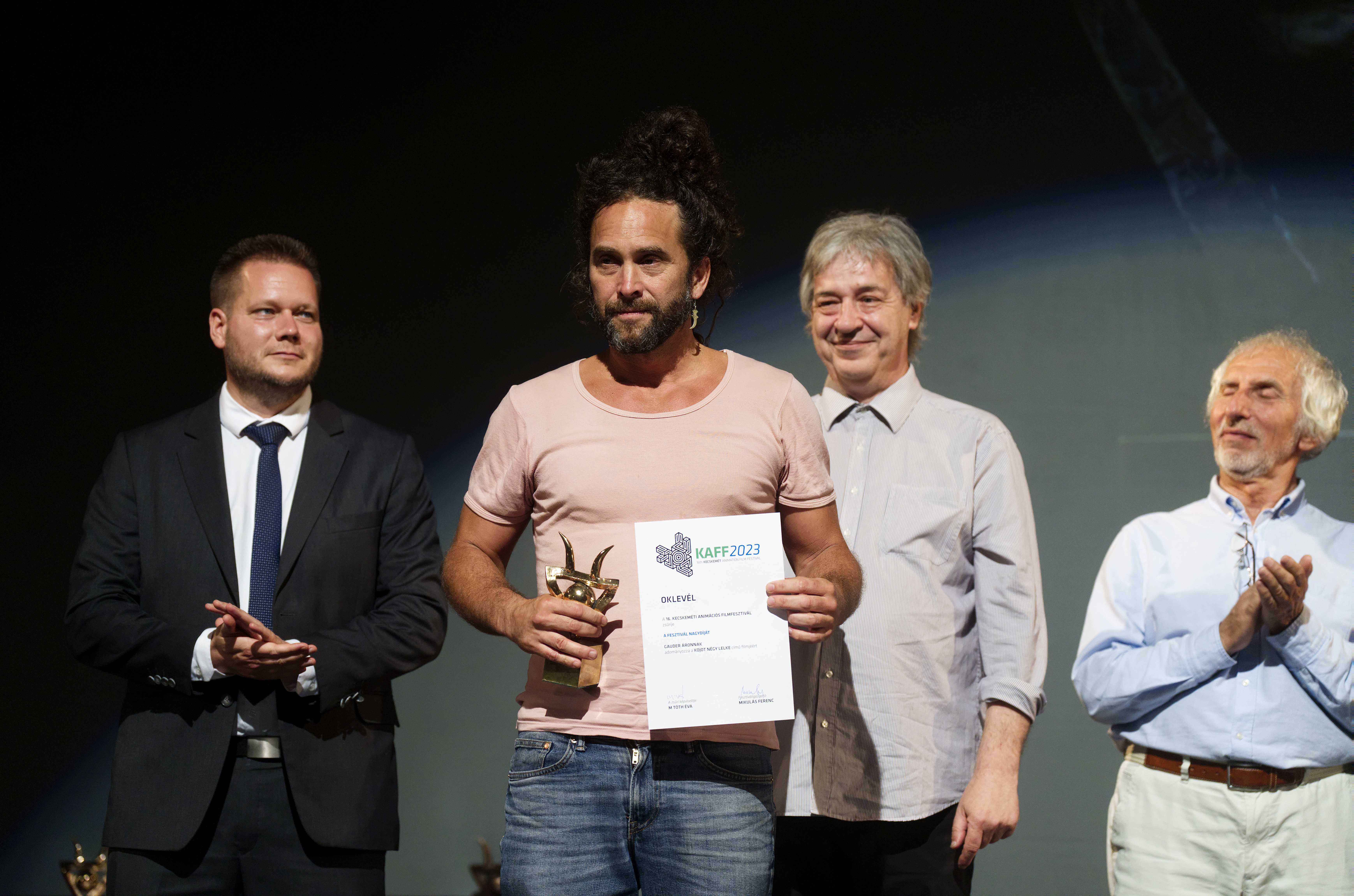
The best short film award went to Olivér Hegyi's The Garden of Heart. According to the jury, "The Garden of Heart tells the story of a young man's search for a way forward with sincere serenity, in the language of his generation and in an authentic way. The jury members were unanimous in their appreciation of the film's positive and natural appeal. The Best Short Film Award is intended to recognise a unique animated vision, inspired by humanistic humour."
The Ágnes Bálint Award for Best Television Series went to Gyopár Orsolya Buzási for her work Ithinkdat: Our Tight House. According to the jury, "With the new award, named after children writer Ágnes Bálint, the jury was particularly pleased with the work, Our Tight House, which was designed for television and intended as a sample episode of a series, for its lush tone, its new vision and the strong stylistic unity of its graphic world with a high degree of freedom. The film's choice of themes reflects playfully and authentically on today's family dynamics, enhanced by the sophisticated narration and soundtrack. For the jury, Gyopár Orsolya Buzási and her fellow creators gave the jury members an experience of rediscovery and wonder."
Kati Glaser's series episode Urban Legends: Pianism won a special prize. According to the jury, "the Urban Legends series uses a consistent visual language, within which it is able to constantly innovate, but which also manages to retain its distinctive stylistic features. Its narrative is dynamic, witty and playful, in keeping with the visual world and animation."
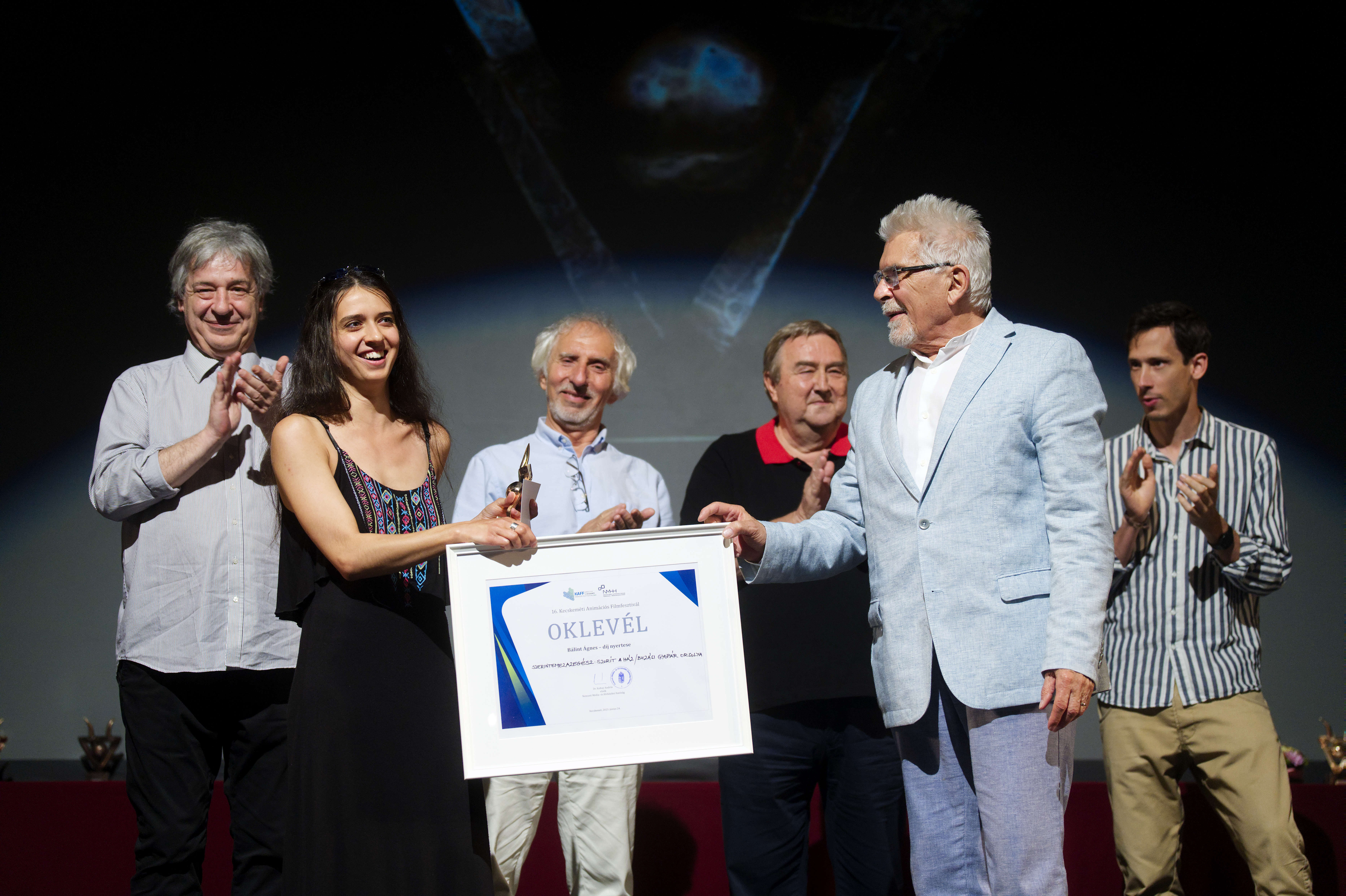
The Best Applied Animation was Kati Egely's Canticuénticos: To Know That I Love You. The jury said that "Cheerfulness, kindness, joy. This was the unanimous view of the jury for the video clip directed by Kati Egely, which won the Best Applied Animation award. The musical short film To Know that I Love You is the best example of how the simple tools of animation can be used to create a soul-stirring work of unique quality in the genre of design animation."
The special prize in the applied animation category was awarded to Máté Fillér's Tót Endre: Why Do I Paint?, which the jury called "a work with a mission to inform, which conveys its theme in a credible, creative and witty way by combining the tools of the animation genre with well-chosen archival sound and visual materials. Long live the animated documentary!"
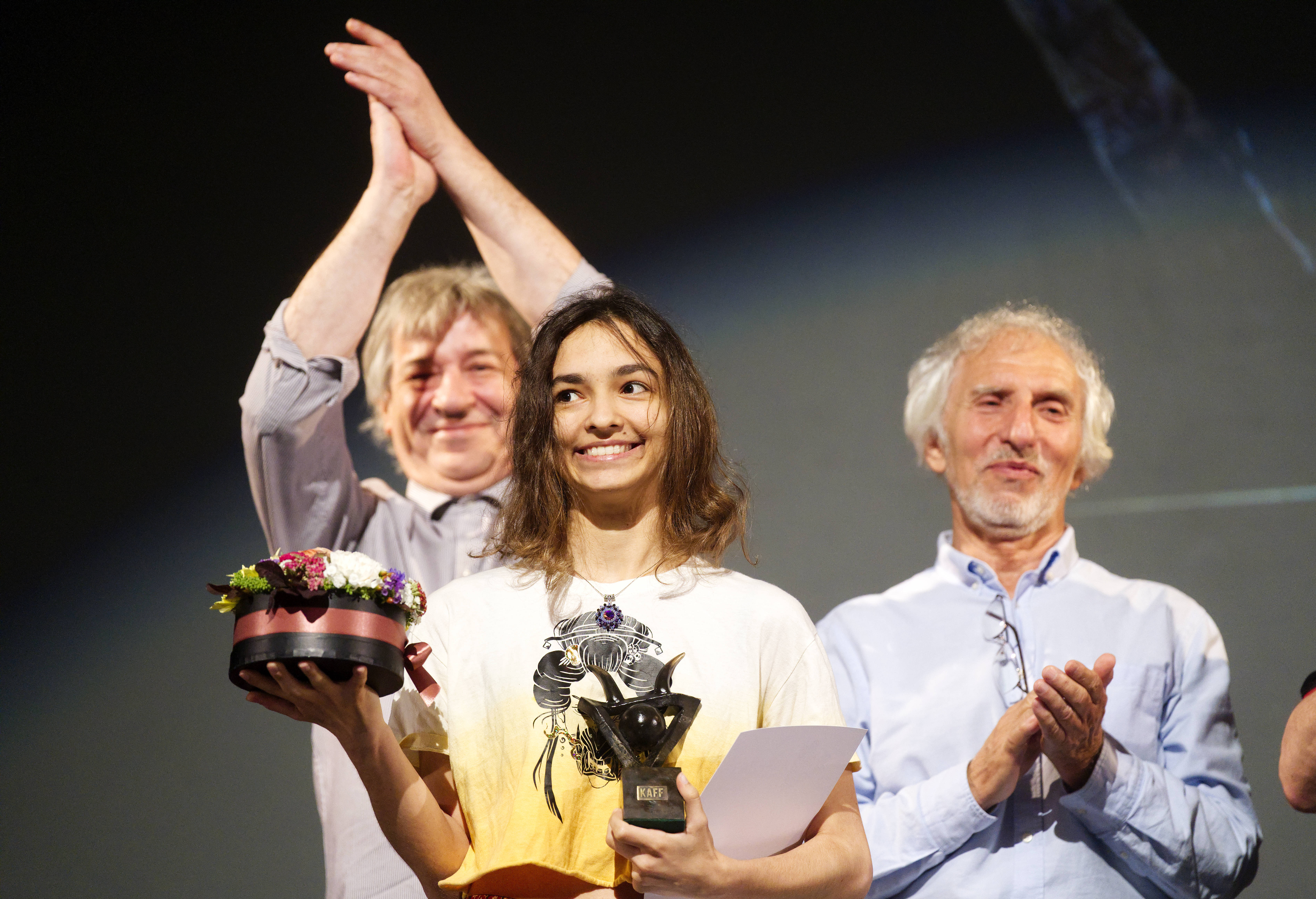
The Best Student Film award went to Adél Palotás' film Lights, whose "story engaged the jury from the beginning and kept them interested throughout the unfolding of the story. Its symbolism and the set of metaphors used by the director are ingenious, understandable, and wittily refer to contemporary issues. The dramaturgical twists and turns of the story are believable, the film is well proportioned and coherent."
A special prize was awarded to Ágnes Szucher's Love in the Time of Corona, "a simple, fresh and grotesque reflection on a recent trauma that affects us all, and at the same time an authentic period piece that shows promise as a student work."
Nikolett Fábián Fábián's Resting Fog was awarded the prize for The Most Original Visual Language. According to the jury, "the poetic work entitled Resting Fog creates a dramatic atmosphere with powerful visual gestures. The artist, Nikolett Fábián, has created a unique and individual visual world, which made a strong impression on the jury with its unified style, sense of proportion and the uniqueness of its use of technology."
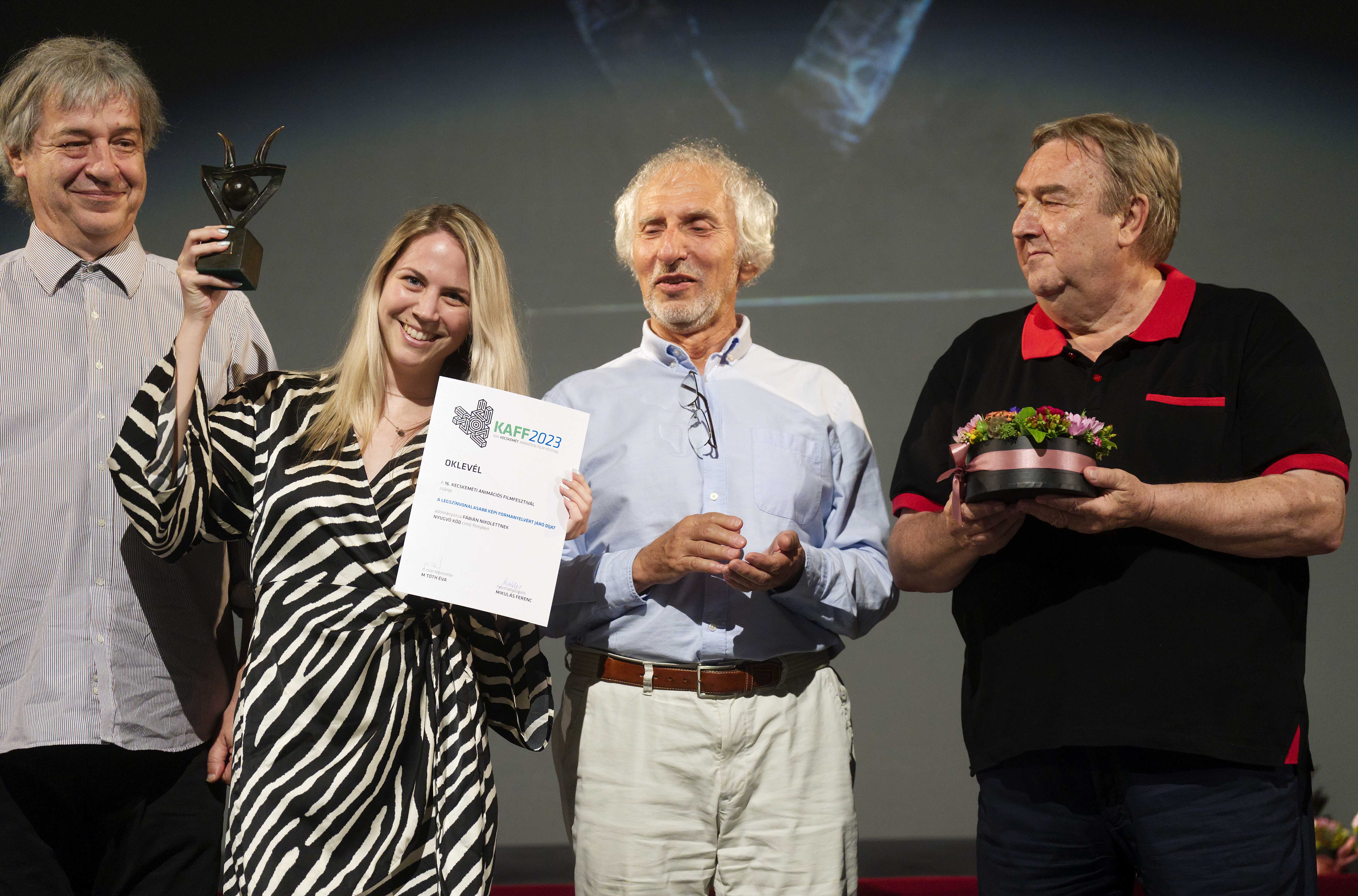
Alexander Gratzer took home the Best Screenplay prize for In the Upper Room. According to the jury, "In the Upper Room tells the growing-up story of a mole - a growing-up story with a distinctly human face - with subtle irony and gentle humour, derived from small, sincere acting gestures. The temporality of the film, the division of the seasons and the unique tone of the narration both capture and hold the viewer's attention. The Best Screenplay award recognises the mutually supportive unity of text, dramaturgy and visuals."
For Best Animation, Vivien Hárshegyi was honoured for her film Above the Clouds, which "uses a witty and rich animation toolbox that is almost inexhaustible in ideas. With fresh humour and authenticity, it conveys the life feelings, problems and anxieties of today's young generation, and the freedom of its means of expression had a liberating effect on the viewer, including the jury."
The awards for Best First Feature and Best 3D Film were not awarded this year.
The jury for the European Feature Film Competition was formed of Sam Orti, Tamás Ittzés and Viktor Dudás, the European Television Awards were decided by József Fülöp, Mauro Carraro and Zoltán István Tóth, while the Hungarian Film Awards were decided by Ferenc Cakó, István Damó, Krzysztof Ducki, Éva M Tóth and Péter Vácz.
The Hungarian Film Critics' Award went to Zénó Mira's short film Fox Tossing, while Olivér Hegyi received a special prize for his work The Garden of Heart. The Junior Jury Prize went to Márton Csutorás' Cured (Kigyógyulva). The National Student Jury Prize in the European Films category went to My Grandfather's Demons, and a special prize went to No Dogs or Italians Allowed. The Aranyhomok Small Area Development Association and the National Student Jury awarded the Hungarian Film Prize to Anita Kühnel-Szabó's short film Your Father (Apád). The students gave a special prize to Máté Fillér for three of his works (Telexikon, Folkfonics - Szól a kakas, Endre Tót: Why do I Paint?). Bence Bárány won the Dot&Line and KAFF critics' competition, Mátyás Béres came second and Norbert Böhm third.
On Sunday the audience will have the chance to see the winning works again.







